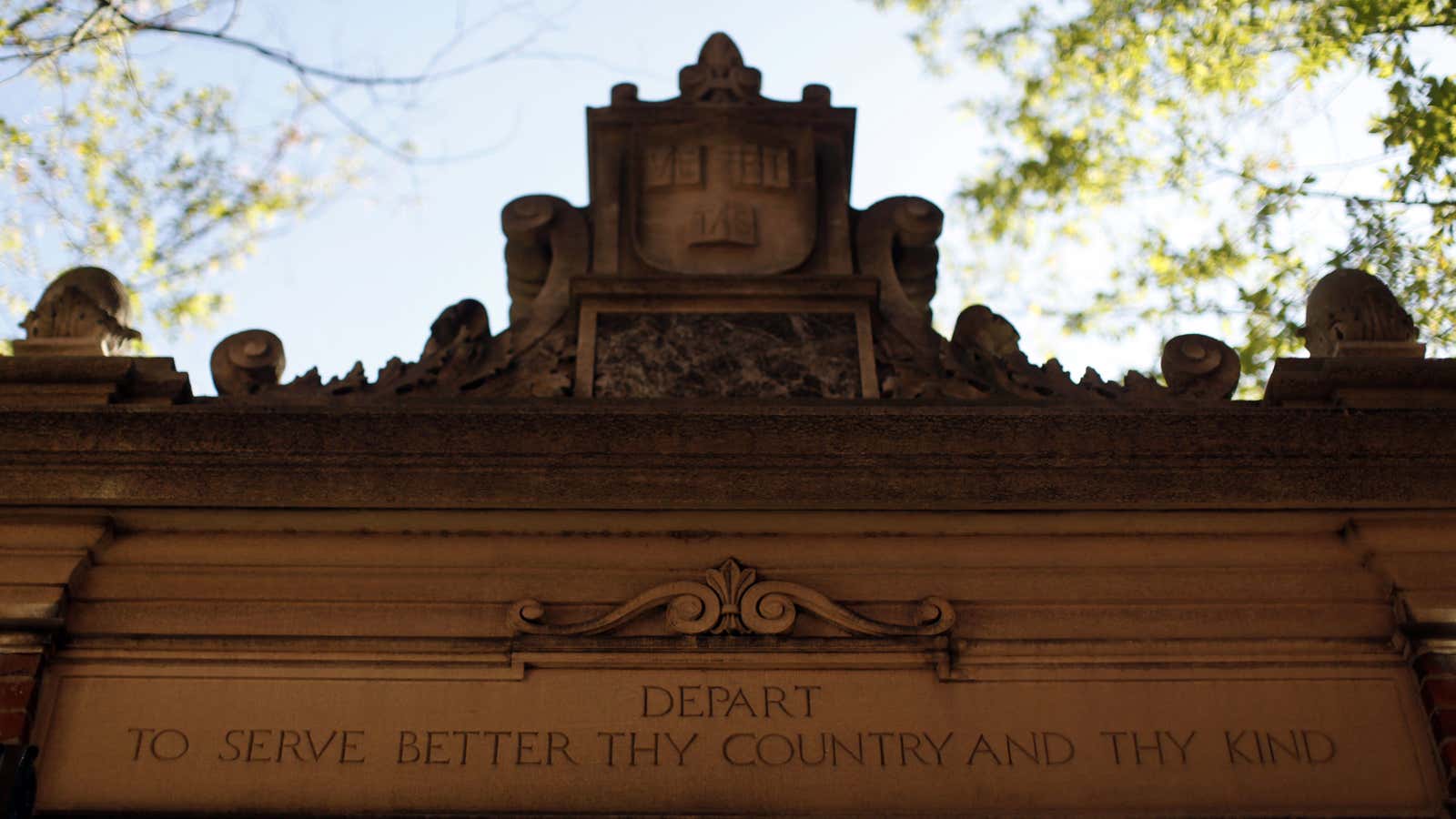The United States economy faces many challenges, but student debt isn’t one of them. It’s true, total outstanding student debt is $1.26 trillion, far larger than car loans, which are $1.1 trillion or credit card debt, weighing in at $0.73 trillion. But still, student loan debt isn’t something most Americans (even indebted millennials) should worry about.
But Bard College president Leon Botstein is worried. He thinks the next president should forgive student debt, all $1.26 trillion. Green Party Candidate Jill Stein has a similar proposal. You might question their motivations for pushing an expensive, regressive policy. Because for all the eye-popping figures, there’s limited evidence that student debt harms millennials, let alone the US economy. Student debt has exploded in recent years in large part because many people went back, or never left school, during the recession.
But, unlike car and credit card loans, student debt can increase your most valuable asset–future earnings. On average, a college graduate will earn $1.66 million in their lifetime, $660,000 more than what a high school graduate earns. People with the biggest debts tend to have graduate degrees, their lifetime earnings average more than $2 million. Not a bad return on investment.
Because more education often means higher earnings, student loans are different from other debt because more you owe, the less likely you are to default. About 34% of people with balances below $5,000 default, while 18% of people with $100,000 of debt do. Only 7% of people with graduate degrees default. Because higher earners tend to have bigger student loans, they also benefit the most from debt forgiveness.
Some argue that student debt is holding back homeownership and millennials starting their own households. Millennials aren’t buying homes, but it’s not because of student debt. A study from the Brookings Institute estimates college graduates with debt are just as likely to own a home as a debt-free graduate. The home ownerships divide is not between people who have student debt and those who don’t, it’s between college graduates and the rest of the population.
Student debt can be harmful, but mainly for people who went to for-profit colleges and drop-outs. About 70% of debt defaults are people who attended for-profit or 2-year colleges. Many of these people took on debt and enrolled hoping education would offer them a leg up in the more competitive economy. They found out the hard all they got for their degrees was debt. This is the population that needs help, but debt relief is only a small part of what they need. Many disadvantaged Americans were short-changed because they got a poor to mediocre education before college. They are told they need to go to college, but lack the skills and resources to make it pay off.
The City College of New York has pioneered a program that overcomes these challenges by offering intense counseling, mentoring and free tuition to help disadvantaged students. The program more than doubled graduation rates and the odds a student goes on to a four year degree. These kinds of programs are an expensive but effective way to help disadvantaged students benefit from post-secondary education. If the goal is helping students struggling with debt, funding these sorts of programs would be a much better use of $1.26 trillion than forgiving the loan of an MBA graduate.
Debt forgiveness would cost 7.5% of GDP. It wouldn’t bankrupt America, but it would add a considerable amount to long-term debt and leave less room to finance fixing other less regressive issues that actually harm the economy. America needs to spend vast amounts of money in the coming years improving its infrastructure. It needs more welfare reform, too. There are simply better ways to spend the money than wiping out student loan debt.
